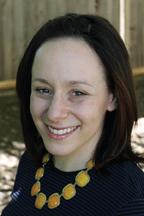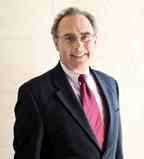
Members of the Jewish community were horrified by events April 13, 2014, when two people were shot and killed in the parking lot of the Jewish Community Campus while a third was murdered in the parking lot at Village Shalom. At that time representatives from PROJECT CHAI, the trauma and bereavement arm of the international organization Chai Lifeline, provided programming and counseling to assist students at Hyman Brand Hebrew Academy as they headed back to their school, located on the Campus, following the tragedy.
Communities often face other types of tragedies — such as deadly car accidents, suicide, childhood cancer deaths — that also need special attention. So with the help of the national PROJECT CHAI (Chizuk, Healing and Intervention), the local Jewish community has established its own PROJECT CHAI. It will be led by Rabbi Mark Levin, founding rabbi of Congregation Beth Torah, and Dr. Ayala Zoltan Rockoff, school psychologist at Hyman Brand Hebrew Academy.
Following the shooting, Rockoff was the community’s first tie to PROJECT CHAI.
“They sent a trauma person here who spent the day, met with students and sort of helped everybody process and move forward from the tragedy on their first day back from school after Passover break,” Rockoff said.
Chai Lifeline is an organization that has traditionally helped families dealing with tragic or chronic illnesses, explained Rockoff, and she said the organization realized over time there needed to be help available when some of the children they’d been treating passed away.
So PROJECT CHAI was established as the trauma and crisis intervention department of Chai Lifeline. It is designed specifically to handle traumatic events such as suicide, attempted or effected; tragic death, such as a car accident, drowning or shooting; unexpected catastrophic events like a tornado, flood or earthquake; robbery or brutal crime; fire; sudden death; traumatic injury; disappeared or missing persons; and domestic abuse.
Once PROJECT CHAI had been to Kansas City, Rockoff said, “They reached out to us and expressed they’d like to come train a local team to do this kind of work here should it ever be needed.”
The Rabbinical Association and Jewish Family Services both got on board and the training of clergy, lay persons and professionals took place over the past year.
Although the Jewish community already has support from rabbis, spiritual advisers, psychologists, etc., Rabbi Levin said traumatic events require a different approach.

“I’ve been doing this for 40 years and I must tell you that, since getting into this and investigating a little bit, there are various groups around the city that are trying to train people in this approach because trauma is not (traditional) counseling as it turns out,” Rabbi Levin said. “I would say that most of us who have been involved in this profession have not been adequately trained about what can be done and why. This particular training we’ve received is going to change the approach and hopefully be more helpful than we have been in the past.”
The rabbi, who is retired from pulpit duties, now spends part of his week on pastoral care, including working with people who are grieving. He explained that what happens in a traumatic situation is the brain is affected and if the person does not give any attention to the emotional impact, this could be stored away causing physical ramifications and affect their long-term mental health. Psychological counseling alone where issues around the personality are addressed is not enough to get to the sudden, very extreme emotions the person experienced and does not pay adequate attention to working through those emotions at the time of the trauma.
As an example, Rabbi Levin said he had probably officiated at funerals for about 40 people who have committed suicide over the last 40 years. In the past, he said, he would take great pains, with tenderness and care, to officiate at the service and do some follow-up with loved ones left behind.
“What I was not aware of because I had never had the training, and I don’t think most people have had the training, is follow up specifically for the trauma of suicide,” he said. “I’m not putting at fault here anyone in the community regarding what has been in the past. We did the best we could do with what we knew at the time. But now there’s this whole new study on the impact of trauma and how to help people get through it in a healthy fashion.”
He said since PROJECT CHAI began here in April 2015, there have been two people killed in automobile accidents, a suicide, a drowning, a boating accident and a tornado. If a tragedy does strike, other Jewish clergy or members of the Jewish professional community know to call Rabbi Levin or Rockoff for help in determining who or what organization is best equipped to help. Individuals are encouraged to call them as well.
“We’re available as a resource to the community whenever tragedy strikes when anybody is at risk after some sort of calamity,” Rockoff said. “We’re first responders providing psychological first aid in the aftermath of trauma and we’d refer out for ongoing therapy.
“Some of us are mental health professionals or clergy ourselves, but the idea of PROJECT CHAI is to just be there on the scene and immediately afterwards to help people process, deal with things, be there as a resource and then help them move on and get other resources should they need follow-up.”
She said a list of resources is being compiled by the local PROJECT CHAI team that they can refer people to — agencies that can pick up where first responders leave off — after the immediate shock has subsided but additional help is needed.
In addition, trauma affects people in all different ways, Rockoff said, so the PROJECT CHAI responders must use every tool available to help people out. Until now, there has been no program that addresses traumatic events for the Jewish community. She said hopefully that hole has now been filled.
“This is certainly groundbreaking and it’s coming from a Jewish organization, so that’s all very good,” she added. “The training spanned across disciplines and touched on different areas. I think what was most helpful about the training was role plays, and then practicing those role plays was great.”
While PROJECT CHAI is still in the inception phase, Rockoff said she is hoping that “very soon we’ll be able to really help people if, G-d forbid, there’s a need.”
Rabbi Levin said he is hopeful about changing people’s perspectives on how to be most helpful to trauma victims and how to keep them from having to suffer from it for many years.
“That’s to everyone’s detriment, not only themselves but members of their family,” he said. “We had this very sad circumstance on April 13, 2014, with three people being murdered and there are people who continue to carry that trauma to this day. I think we have more information now than we had in the past and we have the opportunity to be more helpful. And that’s really what this is about.”
To find out how to get in touch with one of the team leaders, go to www.kcrabbis.org; contact the Rabbinical Association at or call 913-327-4622; or pick up the flyer at the Jewish Community Campus lobby.
For more information about Chai Lifeline, go to www.chailifeline.org.